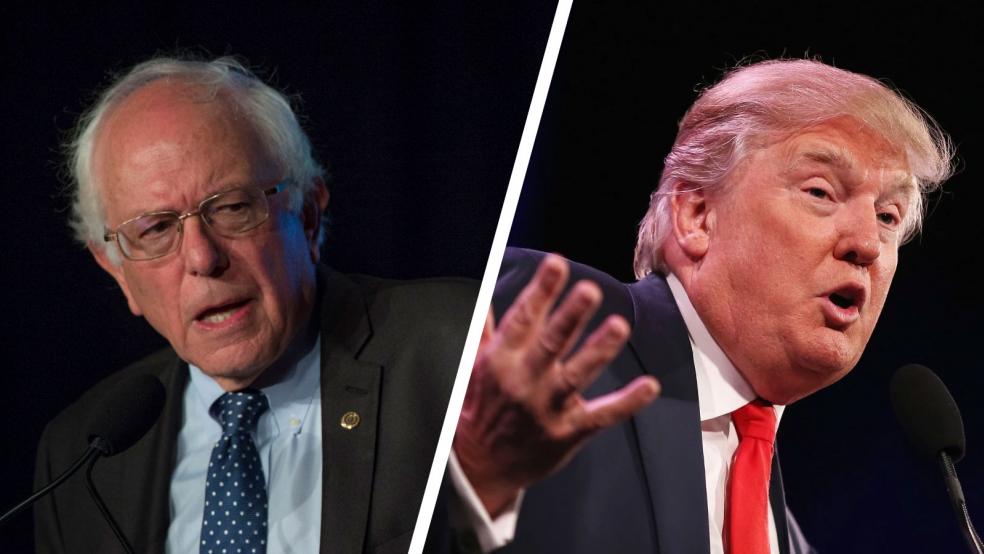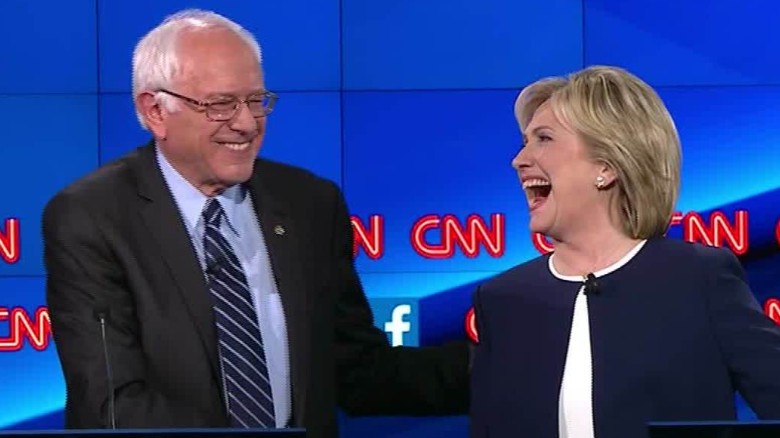
Trump, Sanders, South Korea
But an interesting phenomenon has been discovered as the U.S. presidential race is playing out. Korean intellectuals who criticize and ridicule Donald Trump and his supporters are passionately supporting Bernie Sanders.
Trump is a populist whose popularity stems from his advocacy of radical right-wing views, while Sanders is an authentic avatar of the progressive left wing. But why is criticizing one side and defending another an “interesting” phenomenon? It’s because Trump and Sanders each personify the right and left views of the American public sentiment. In short, their popularity is analogous to the two sides of a coin.
The real issue is this: What are the emotions they represent? In a nutshell, it’s “chagrin.” If we borrow the wording from the historian Ian Buruma’s book, “Year Zero: A History of 1945,” it hasn’t always been that way since the “year zero” (which marks the start of the new age) to now. But now Americans feel chagrined. The Trump trend and Sanders trend are no more than two aspects of the public sentiment that has been set afire.
Trump emphasizes an aversion to immigrants, women, and other social minorities as the frontline of his campaign. On the other hand, Sanders campaigns the view that “99 percent of all new income generated today goes to the top 1 percent. The top one-tenth of 1 percent owns as much wealth as the bottom 90 percent.” On the surface, the two candidates seem to have no point of overlap.
But if we look at the specifics, the public mood that they rely on is not too different. Trump rages that American allies in Northeast Asia, such as Japan and South Korea, are free riding on U.S. security. Sanders voices that the United States and Japan are signing a Trans-Pacific Partnership trade agreement that seeks to feed only the large multinational corporations. Whether the reason be security or economy, both candidates seek to isolate the U.S. from the outside world.
Today we regard it as a kind of natural phenomenon that the United States has taken on the role of “the policeman of the world.” We also think it’s natural that companies all over the globe are ultimately targeting the American market. However, this wasn’t the case until after World War I. Before the war, the United States hadn’t shown any interest in matters beyond its own borders. In essence, it was a “sleeping giant.” The giant woke up during the two world wars, the so-called “Pax Americana” began, and the Republic of Korea slowly grew under the safeguard of American security and the global trading system founded upon that security.
Koreans voice their concerns over Trump's remarks that the United States Forces Korea must either withdraw or be fully paid for by the Republic of Korea. On the other hand, what about Sanders’s claim that the U.S. must domestically produce the goods it consumes instead of importing them from China or other low-wage countries? It’s just as dangerous as Trump’s remarks. Sanders’s views aren’t too promising. Already, major powers such as the United Kingdom and France (which have similarly built a "block economy” around their colonies to protect the economy of their mother nation) have fallen into a swamp of stagnation. The global economic pie itself has been shrinking. Even the major powers could not escape from the recession, leading to World War II barely a century ago.
Criticizing Trump and cheering on Sanders almost makes us feel as if we are the “American left wing.” But almost all of us are actually just Koreans living in the Republic of Korea. Are you fired up by Sanders, who calls himself a socialist and slams Wall Street? He is no different from Trump in encouraging isolationism among chagrined Americans. What we ought to feel is fear.


